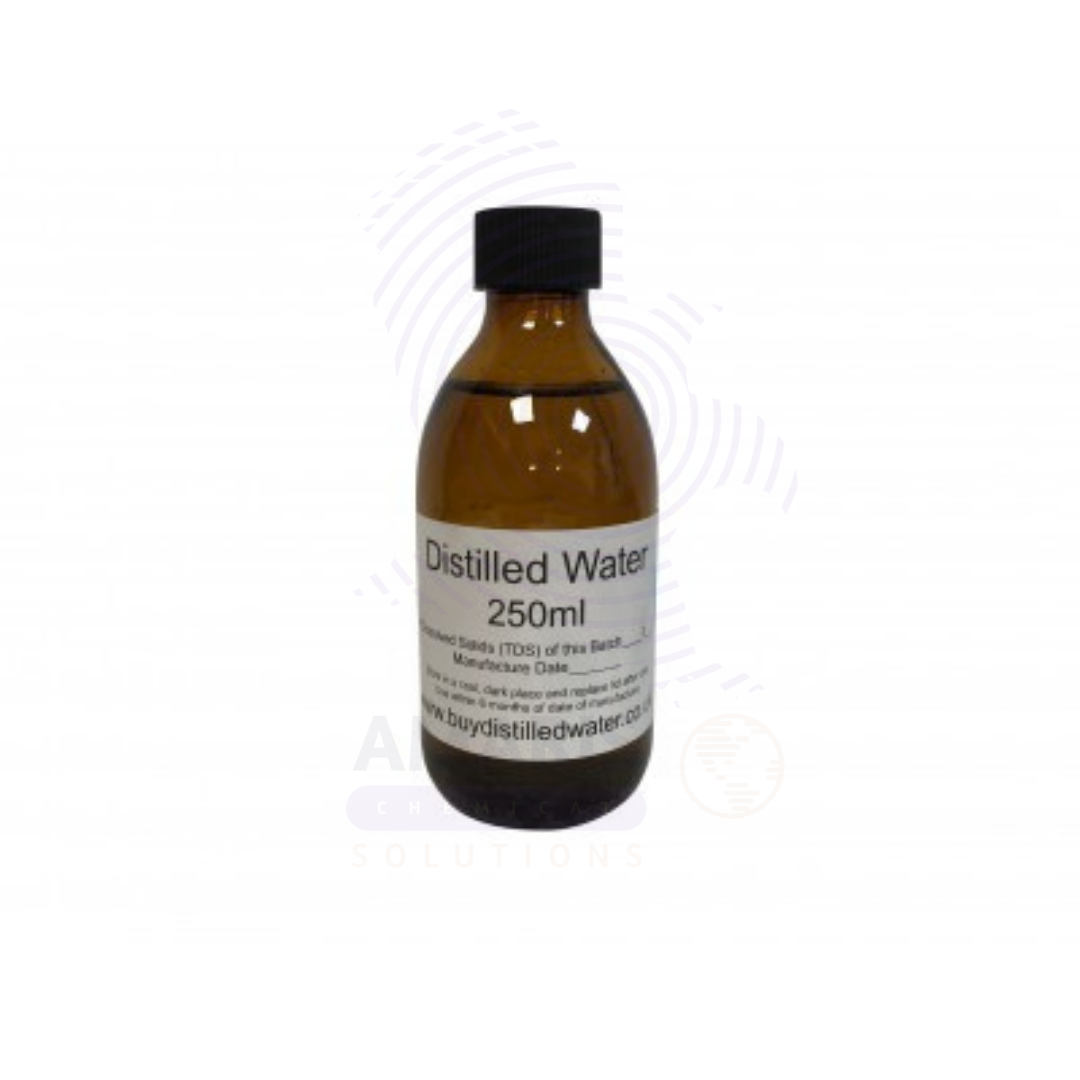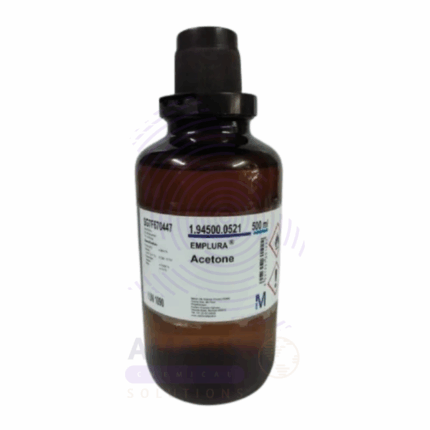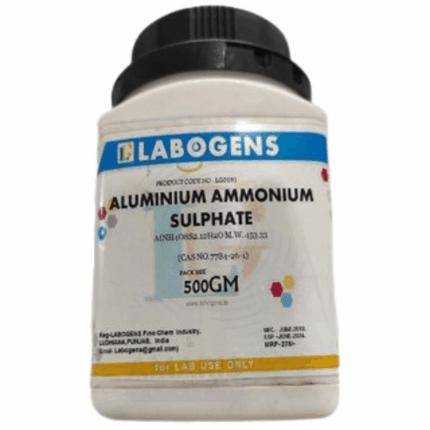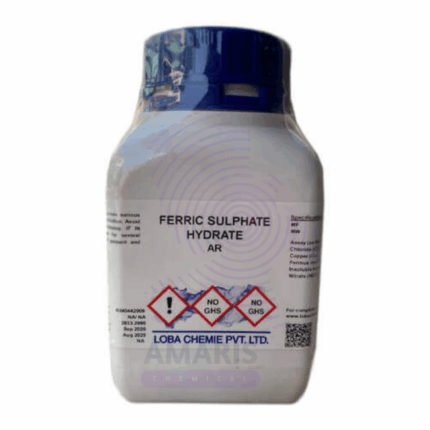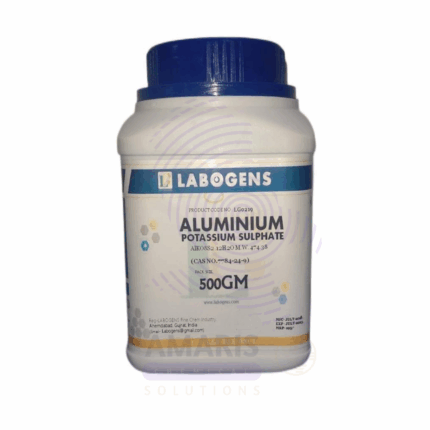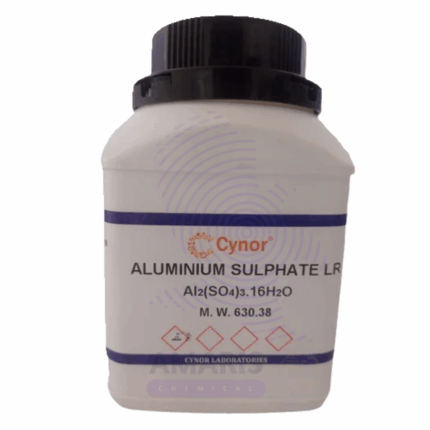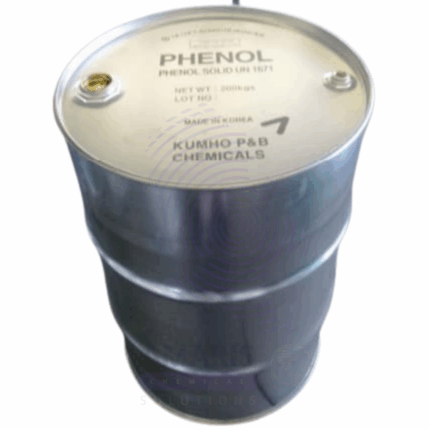“Aluminium Chloride Anhydrous Extra Pure” has been added to your cart. View cart
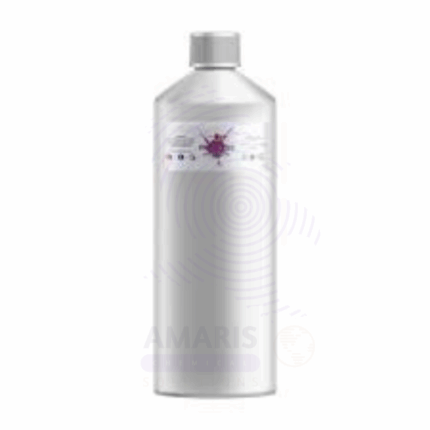
Royal Type Oil Fragrance
$ 29.00 Original price was: $ 29.00.$ 28.64Current price is: $ 28.64.
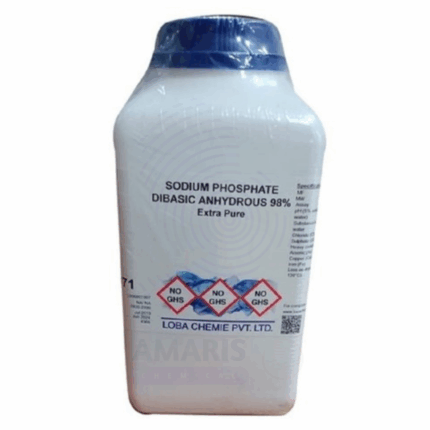
Disodium Phosphate Extra Pure
$ 18.00 Original price was: $ 18.00.$ 17.80Current price is: $ 17.80.
Distilled Water Extra Pure
$ 7.00 Original price was: $ 7.00.$ 6.59Current price is: $ 6.59.
Whatsapp Order
Distilled Water Extra Pure is laboratory-grade water that has been thoroughly purified through distillation to remove all dissolved salts, minerals, organic compounds, and microbial contaminants. It serves as an essential solvent and diluent in chemical analyses, reagent preparation, and biological experiments where purity is critical. Its high level of cleanliness ensures minimal interference in sensitive laboratory procedures, making it ideal for use in analytical instrumentation, standard solution preparation, and microbiological testing.
Description
Table of Contents
Toggle
Distilled Water Extra Pure
Primary Uses
- Solvent for reagent preparation:
Acts as a pure, neutral medium for dissolving chemicals to prepare accurate solutions. - Cleaning and rinsing laboratory glassware and instruments:
Prevents contamination from minerals or ions present in tap water. - Dilution of concentrated acids, bases, and stock solutions:
Ensures precision in concentration and avoids unintended reactions. - Sample preparation and reconstitution:
Used to prepare or rehydrate biological, chemical, and pharmaceutical samples. - Media preparation in microbiology and cell culture:
Provides a sterile and inert water source that supports controlled growth environments.
Secondary Uses
- Calibration of instruments (e.g., pH meters, spectrophotometers):
Used as a reference or blank for accurate measurements. - Water bath filling for controlled heating:
Provides a clean medium for uniform heat transfer without introducing contaminants. - Storage of sensitive chemicals or biological samples:
Ensures minimal interference or degradation over time. - Steam generation for autoclaves or distillation setups:
Produces contaminant-free steam for sterilization and experimental use.
KEY PRODUCT FEATURES
KEY ATTRIBUTES
1. Basic Identification Attributes
- Chemical Name: Distilled Water
- Other Names: Purified Water, H₂O (distilled)
- Chemical Formula: H₂O
- CAS Number: 7732-18-5
- Grade: Extra Pure (Laboratory Grade)
- Molecular Weight: 18.02 g/mol
- Appearance: Clear, colorless, odorless liquid
2. Physical & Chemical Properties
- Solubility: Universal solvent (miscible with most substances)
- pH: ~5.5 – 7.0 (due to dissolved atmospheric CO₂)
- Boiling Point: 100 °C at 1 atm
- Freezing Point: 0 °C
- Conductivity: <1 µS/cm (ultrapure types can be ~0.05 µS/cm)
- Purity: Free from dissolved salts, organic matter, and particulates
3. Safety & Hazard Attributes
- GHS Classification: Not hazardous
- Hazard Statements: None
- PPE Requirements (when applicable):
- Generally none required
- Use gloves and eye protection if used with reactive substances
- First Aid Measures:
- Inhalation / Ingestion / Contact: No adverse effects expected
4. Storage & Handling Attributes
- Storage Conditions:
- Store in clean, tightly sealed containers
- Avoid contamination from air or glassware
- Store at room temperature away from reactive chemicals
- Handling Notes:
- Use only with clean or sterile equipment
- Avoid contact with reactive or hygroscopic substances
5. Regulatory & Compliance Attributes
- EC Number: 231-791-2
- UN Number: Not regulated
- Hazard Class: Not hazardous
- REACH Status: Exempt
6. Laboratory Applications
- Primary Uses:
- Solvent in chemical reactions and dilutions
- Rinsing agent for labware
- Reagent preparation
- Blank or control in analytical procedures
- Other Uses:
- Used in autoclaves and sterilizers
- Medium for microbiology or biochemistry work
- Ingredient in aqueous solutions and buffers
SAFETY HANDLING PRECAUTIONS
SAFETY MEASURES
SAFETY & HANDLING
- PPE: None required under normal lab use, but lab hygiene should be maintained
- Storage:
- Store in clean, inert plastic or glass containers
- Keep tightly sealed to avoid airborne contamination (e.g., dust, CO₂)
- Avoid recontamination—dispense with sterile pipettes or clean vessels
STABILITY & COMPATIBILITY
- Stability: Stable under normal conditions
- Reactivity: Non-reactive, but can dissolve gases, minerals, or contaminants if exposed
- Avoid contact with: Contaminated surfaces, non-lab grade containers, reactive metals (in sensitive analyses)
FIRST AID MEASURES
- Eye/Skin Contact / Inhalation / Ingestion: No known hazard under standard conditions.
- If contamination is suspected, treat as per the contaminant involved.
Related products
Acetone Extra Pure
Acetone Extra Pure is a highly volatile, flammable, and colorless liquid widely used as a powerful solvent in laboratory and industrial applications. Known for its exceptional ability to dissolve a wide range of substances, it is commonly employed for cleaning laboratory glassware, thinning resins, and removing organic residues. In the cosmetics and pharmaceutical industries, acetone is used in nail polish removers and formulation processes. Its high evaporation rate and purity make it suitable for analytical procedures and synthesis work, especially where contaminant-free solvents are essential. With a distinct odor and low boiling point, Acetone Extra Pure is an indispensable reagent for both routine and specialized chemical operations.
Aluminium Ammonium Sulphate Extra Pure
Aluminium Ammonium Sulphate Extra Pure, also known as ammonium alum, is a high-purity double salt composed of aluminum sulfate and ammonium sulfate, typically appearing as colorless or white crystalline granules. Valued for its excellent stability and solubility in water, it is widely used in analytical chemistry, dye mordanting, and laboratory reagent preparations. Its ability to precipitate proteins makes it useful in biochemical applications, while its astringent and antimicrobial properties support its role in pharmaceutical and cosmetic formulations. The extra pure grade ensures minimal impurities, making it suitable for high-precision scientific work. It should be stored in a tightly sealed container in a dry, cool area to prevent moisture absorption and maintain its effectiveness.
Aluminium Ferric Sulphate Extra Pure
Aluminium Ferric Sulphate Extra Pure is a high-purity, yellowish to light brown crystalline solid composed of aluminum, iron, and sulfate ions, commonly used in laboratory settings for analytical, coordination, and inorganic chemistry research. Its dual-metal composition makes it valuable for studying metal ion interactions, flocculation processes, and as a reagent in qualitative analysis of phosphates and tannins. The compound also finds application in preparing standard solutions and in experiments related to coagulation and sedimentation. Its extra pure grade ensures consistent performance with minimal contamination, making it ideal for precise, controlled experimentation. It should be stored in tightly sealed containers in a dry, cool environment to maintain stability and prevent moisture uptake.
Aluminium Potassium Sulphate Hydrated Extra Pure
Aluminium Potassium Sulphate Hydrated Extra Pure, commonly known as potash alum, is a high-purity, colorless to white crystalline compound containing water of crystallization. It is widely used in laboratory settings for analytical chemistry, especially in the preparation of standard solutions, precipitation reactions, and as a source of aluminum ions. Its astringent and antiseptic properties also make it useful in biochemical and pharmaceutical experiments. The hydrated form offers improved handling and solubility in water, which supports its use in buffer systems and crystal growth studies. With minimal impurities, the extra pure grade ensures consistent and reliable results in sensitive research applications. It should be stored in a dry, cool environment in well-sealed containers to preserve its quality and prevent moisture loss.
Aluminium Sulphate Anhydrous Extra Pure
Aluminium Sulphate Anhydrous Extra Pure is a high-purity, white crystalline or powdery solid commonly used in laboratory chemistry as a source of aluminum ions for precipitation, titration, and coordination studies. Its anhydrous form provides a concentrated and stable option for applications requiring precise control over water content, such as analytical reagent preparation, pH adjustment, and synthesis of other aluminum salts. This compound is also used in paper sizing experiments, dye fixation, and water treatment research. The extra pure grade ensures very low levels of contaminants, supporting accurate and reproducible results in sensitive experimental work. It should be stored in airtight containers in a dry area to prevent moisture absorption and preserve its chemical integrity.
Ammonium Cupric Chloride Extra Pure
- SHORT DESCRIPTION
Naphazolin hCL USP
Naphazolin Hydrochloride (Naphazolin HCL) is a topical sympathomimetic agent commonly used as a nasal decongestant and ophthalmic vasoconstrictor. It is a white to off-white crystalline powder soluble in water and alcohol. Naphazolin HCL works by constricting blood vessels, reducing swelling and redness in mucous membranes and eyes. It is widely used in pharmaceutical formulations such as nasal sprays and eye drops.
Phenol Ice Crystals
Phenol Ice Crystals, also known as carbolic acid in solid form, are crystalline compounds of phenol with a melting point near room temperature, giving them an “ice-like” appearance. Phenol is a aromatic organic compound widely used as a precursor in chemical synthesis, disinfectants, and pharmaceuticals. It exhibits antiseptic, antiseptic, and solvent properties. Due to its toxicity and corrosiveness, phenol requires careful handling.


 Acidulants
Acidulants Antioxidants
Antioxidants Nutraceutical Ingredients (food)
Nutraceutical Ingredients (food)
 Collectors
Collectors Dust Suppressants
Dust Suppressants Explosives and Blasting Agents
Explosives and Blasting Agents Flocculants and Coagulants
Flocculants and Coagulants Frothers
Frothers Leaching Agents
Leaching Agents pH Modifiers
pH Modifiers Precious Metal Extraction Agents
Precious Metal Extraction Agents
 Antioxidants(plastic)
Antioxidants(plastic) Colorants (Pigments, Dyes)
Colorants (Pigments, Dyes) Fillers and Reinforcements
Fillers and Reinforcements Flame Retardants
Flame Retardants Monomers
Monomers Plasticizers
Plasticizers Polymerization Initiators
Polymerization Initiators Stabilizers (UV, Heat)
Stabilizers (UV, Heat)
 Antifoaming Agents
Antifoaming Agents Chelating Agents
Chelating Agents Coagulants and Flocculants
Coagulants and Flocculants Corrosion Inhibitors
Corrosion Inhibitors Disinfectants and Biocides
Disinfectants and Biocides Oxidizing Agents
Oxidizing Agents pH Adjusters
pH Adjusters Scale Inhibitors( water)
Scale Inhibitors( water)
 Antioxidants(cosmetic)
Antioxidants(cosmetic) Emollients
Emollients Fragrances and Essential Oils
Fragrances and Essential Oils Humectants
Humectants Preservatives
Preservatives Surfactants(cosmetic)
Surfactants(cosmetic) Thickeners
Thickeners UV Filters
UV Filters
 Fertilizers
Fertilizers Soil Conditioners
Soil Conditioners Plant Growth Regulators
Plant Growth Regulators Animal Feed Additives
Animal Feed Additives Biostimulants
Biostimulants Pesticides (Herbicides, Insecticides, Fungicides)
Pesticides (Herbicides, Insecticides, Fungicides)
 Active Pharmaceutical Ingredients (APIs)
Active Pharmaceutical Ingredients (APIs) Excipients
Excipients Solvents(pharmaceutical)
Solvents(pharmaceutical) Antibiotics
Antibiotics Antiseptics and Disinfectants
Antiseptics and Disinfectants Vaccine Adjuvants
Vaccine Adjuvants Nutraceutical Ingredients (pharmaceutical)
Nutraceutical Ingredients (pharmaceutical) Analgesics & Antipyretics
Analgesics & Antipyretics
 Analytical Reagents
Analytical Reagents Chromatography Chemicals
Chromatography Chemicals Spectroscopy Reagents
Spectroscopy Reagents Molecular Biology Reagents
Molecular Biology Reagents Biochemical Reagents
Biochemical Reagents Inorganic and Organic Standards
Inorganic and Organic Standards Laboratory Safety Chemicals
Laboratory Safety Chemicals Specialty Laboratory Chemicals(Special Laboratory Equipment)
Specialty Laboratory Chemicals(Special Laboratory Equipment)
 Demulsifiers
Demulsifiers Hydraulic Fracturing Fluids
Hydraulic Fracturing Fluids Scale Inhibitors(oil)
Scale Inhibitors(oil) Surfactants(oil)
Surfactants(oil) Drilling Fluids
Drilling Fluids
 Dyes and Pigments
Dyes and Pigments Bleaching Agents
Bleaching Agents Softening Agents
Softening Agents Finishing Agents
Finishing Agents Antistatic Agents
Antistatic Agents
 Admixtures
Admixtures Waterproofing Agents
Waterproofing Agents Sealants and Adhesives
Sealants and Adhesives Curing Compounds
Curing Compounds Concrete Repair Chemicals
Concrete Repair Chemicals Anti-Corrosion Coatings
Anti-Corrosion Coatings
 Surfactants(cleaning)
Surfactants(cleaning) Builders
Builders Enzymes
Enzymes Solvents (Cleaning)
Solvents (Cleaning) Fragrances
Fragrances
 Electronic Chemicals
Electronic Chemicals Catalysts
Catalysts Lubricants
Lubricants Photographic Chemicals
Photographic Chemicals Refrigerants
Refrigerants Automotive chemicals
Automotive chemicals Pyrotechnic Chemicals
Pyrotechnic Chemicals
 Biodegradable Surfactants
Biodegradable Surfactants Bio-based Solvents
Bio-based Solvents Renewable Polymers
Renewable Polymers Carbon Capture Chemicals
Carbon Capture Chemicals Wastewater Treatment Chemicals
Wastewater Treatment Chemicals
 Pigments
Pigments Solvents(paint)
Solvents(paint) Specialty Coatings
Specialty Coatings Binders/Resins
Binders/Resins Additives
Additives Driers
Driers Anti-Corrosion Agents
Anti-Corrosion Agents Functional Coatings
Functional Coatings Application-Specific Coatings
Application-Specific Coatings
 Fresh Herbs
Fresh Herbs Ground Spices
Ground Spices Whole Spices
Whole Spices Spice Blends
Spice Blends Dried Herbs
Dried Herbs
 Leavening Agents
Leavening Agents Dough Conditioners
Dough Conditioners Flour Treatments
Flour Treatments Fat Replacers
Fat Replacers Decoratives
Decoratives Preservatives(baking)
Preservatives(baking)
 Plasticizers & Softeners
Plasticizers & Softeners Reinforcing Agents
Reinforcing Agents Adhesion Promoters
Adhesion Promoters Vulcanizing Agents
Vulcanizing Agents Antidegradants
Antidegradants Blowing Agents
Blowing Agents Fillers & Extenders
Fillers & Extenders Accelerators & Retarders
Accelerators & Retarders